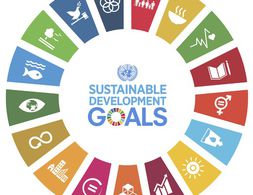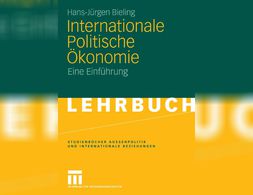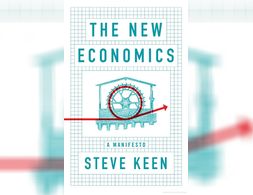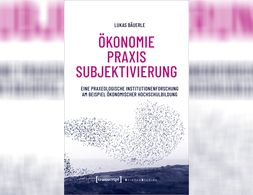11 Ergebnisse
The COVID-19 pandemic has had far-reaching implications across the African continent. This discussion brings to light the role of African think tanks, such as the African Center for Economic Transformation (ACET) in rethinking the continent’s development models, especially, in light of the unprecedented crisis.
Exploring Economics, an open-source e-learning platform, giving you the opportunity to discover & study a variety of economic theories, topics, and methods.
Der Beitrag befasst sich mit der Schaffung finanztheoretischer Rahmenbedingungen hinsichtlich einer sozial-ökologischen Transformation der heutigen Wirtschaftsweise durch gezielt-effiziente Anpassung der Geschäftstätigkeit des globalen Bankensektors unter Betrachtung der resultierenden Folgewirkungen zwecks hinreichender Zielerfüllung im Sinne des Pariser Abkommens.
Wie erfüllen und finanzieren wir die Ziele des Pariser Abkommen / Climate Agreement (Social Development Goals (SDG) & Environmental Social Governance (ESG)) in nur noch 30 Jahren? Eine mögliche Antwort.
Dieses Seminar untersucht wie gesellschaftliche und wirtschaftliche Transformationen im Kontext der Klimakrise aussehen können und was diese gegenwärtig behindert.
Mit dem Paris-Abkommen von 2015 hat sich die internationale Staatengemeinschaft auf bestimmte Temperaturziele verständigt. Wie diese zu erreichen sind, wird auch eine gesellschaftliche Entscheidung sein.
The workshop deals with the contribution of Plural Economics to the urgently needed change of the economic system towards sustainability and global responsibility.
After completing the module, participants should be able to demarcate and explain different economic approaches to sustainability. They should be able to evaluate the respective concepts based on their contribution to the ecological transformation of the economic system.
Die Internationale Politische Ökonomie (IPÖ) hat sich seit den 1970er Jahren zu einem lebhaften Forschungszweig entwickelt. Im Forschungs- und Diskussionsprozess treffen nicht nur Wissenschaftler aus unterschiedlichen Theorietraditionen und disziplinären Kontexten aufeinander, wie z.B. aus der Ökonomie, Politikwissenschaft, Geschichte oder Geographie.
In this book, the author critically examines a number of socialist proposals that have been put forward since the end of the Cold War. It is shown that although these proposals have many merits, their inability effectively to incorporate the benefits of information technology into their models has limited their ability to solve the problem of socialist construction. The final section of the book proposes an entirely new model of socialist development, based on a "needs profile" that makes it possible to convert the needs of large numbers of people into data that can be used as a guide for resource allocation. This analysis makes it possible to rethink and carefully specify the conditions necessary for the abolition of capital and consequently the requirements for socialist revolution and, ultimately, communist society.
Having dissected what's supposedly wrong with contemporary macroeconomics, Steve Keen, on the leading critics of the mainstream of our times and distinguished economist himself, goes on to present his idea of a New Economics: What premises it should build on, what methods it should use, and yes, what purpose it should serve.
Eine erfolgreiche Wirtschaftstransformation hängt von einer Veränderung der ökonomischen Praktiken der Akteure ab. Die „Spirale transformativen Lernens“ identifiziert, welche Fähigkeiten dafür entscheidend sind.
Wie sähen Wirtschaftswissenschaften aus, die sich konsequent den Praktiken wirtschaftender Akteur*innen zuwenden? Um diese Frage zu beantworten, entwickelt Lukas Bäuerle einen konzeptuellen Rahmen aus Institutionen- und Praxistheorien, kritischem Realismus und Sozialphänomenologie, den er stringent zu einer praxeologischen Institutionenforschung zuspitzt. Am Beispiel der Subjektivierungspraktiken von Studierenden der Wirtschaftswissenschaften dekliniert er seinen Ansatz durch und deutet die empirischen Ergebnisse in Anlehnung an Friedrich Hayek, Karl Marx und Roberto Unger. Das Ergebnis: Wirtschaftswissenschaften sollten nicht nur grundlegend neu gemacht werden, sondern können es auch!
Wir nutzen Cookies. Klicke auf "Akzeptieren" um uns dabei zu helfen, Exploring Economics immer besser zu machen!










